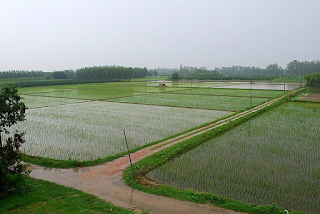Pros and Cons of Fiji Water
Fiji Water is a premium bottled water brand that has gained popularity worldwide. Known for its unique taste and aroma, Fiji Water is sourced from an aquifer located in the Yaqara Valley of Viti Levu, the largest island of Fiji. The brand has been praised for its high quality and purity, as well as its positive impact on the environment and the local community. However, there are also a number of cons associated with Fiji Water, including environmental concerns, high cost, criticism for corporate practices, and lack of accessibility for many consumers.
Pros of Fiji Water
High Quality and Purity: One of the main advantages of Fiji Water is its high quality and purity. The water is sourced from a protected aquifer and goes through a rigorous filtration process to ensure its quality and taste.
Positive Impact on the Environment: Fiji Water has made significant investments in environmental sustainability, including renewable energy sources and water conservation measures. The company has also helped to reforest the surrounding areas and protect wildlife habitats.
Contributes to the Local Community: Fiji Water has made a positive impact on the local community by providing jobs and supporting local initiatives, such as education and healthcare. The company is committed to being a responsible corporate citizen and helping to improve the lives of those who live in the surrounding area.
Unique Taste and Aroma: Fiji Water is known for its unique taste and aroma, which is a result of the mineral composition of the aquifer and the filtration process. This makes it a popular choice among water connoisseurs who appreciate its unique flavor.
Cons of Fiji Water
Environmental Concerns: Despite the company’s efforts to be environmentally responsible, there are still concerns about the impact of bottled water on the environment. The production and transport of bottled water can be environmentally damaging and contributes to plastic waste.
High Cost: Fiji Water is a premium product, and as such, it is much more expensive than other brands of bottled water. This can make it difficult for many consumers to justify the cost, especially when compared to the cost of tap water.
Criticism for Corporate Practices: Fiji Water has faced criticism for its corporate practices, including the use of tax incentives to reduce the cost of production, and accusations of price-fixing. These practices have led to concerns about the ethical practices of the company.
Lack of Accessibility for Many Consumers: Fiji Water is not widely available in many parts of the world, making it difficult for consumers to access this premium product. This can limit the ability of consumers to enjoy the benefits of Fiji Water and contribute to the local community.
Conclusion
In conclusion, Fiji Water has its pros and cons. On one hand, it is a high-quality and pure bottled water brand with a unique taste and aroma, and it has a positive impact on the environment and the local community. On the other hand, there are concerns about the environmental impact of bottled water, the high cost of Fiji Water, and criticism of the company’s corporate practices. Ultimately, the decision to consume Fiji Water is a personal one and will depend on a number of factors, including cost, environmental impact, and corporate practices.

Comments
Post a Comment